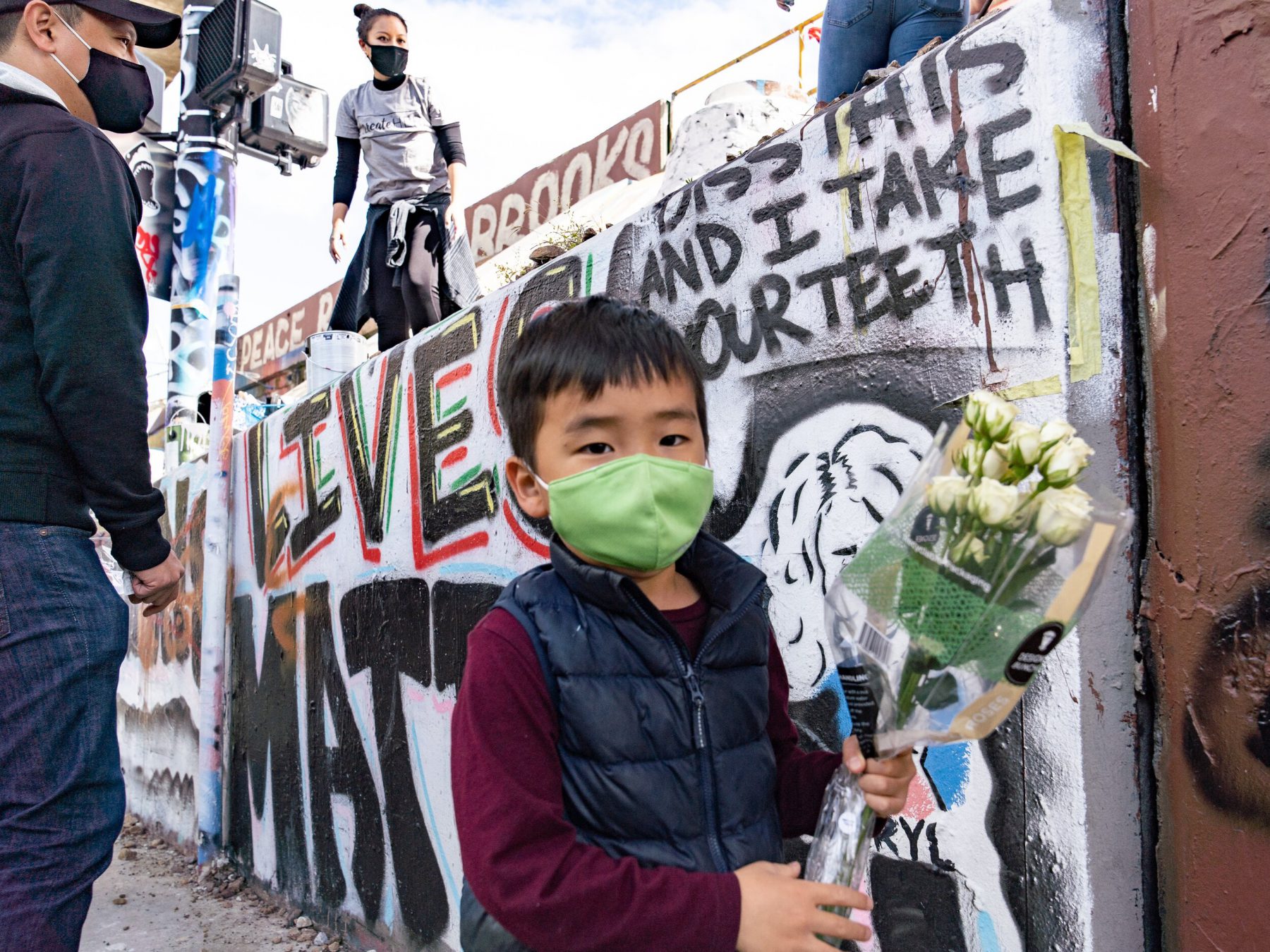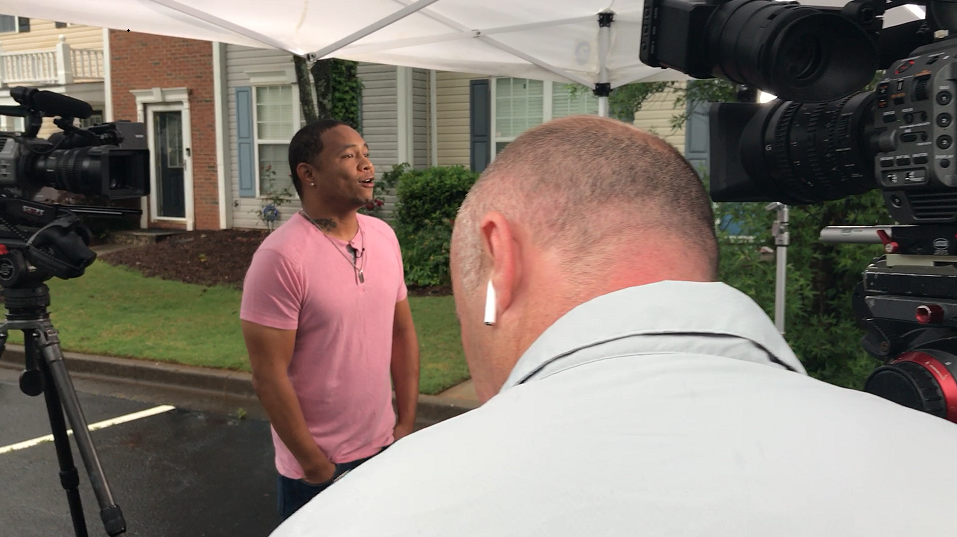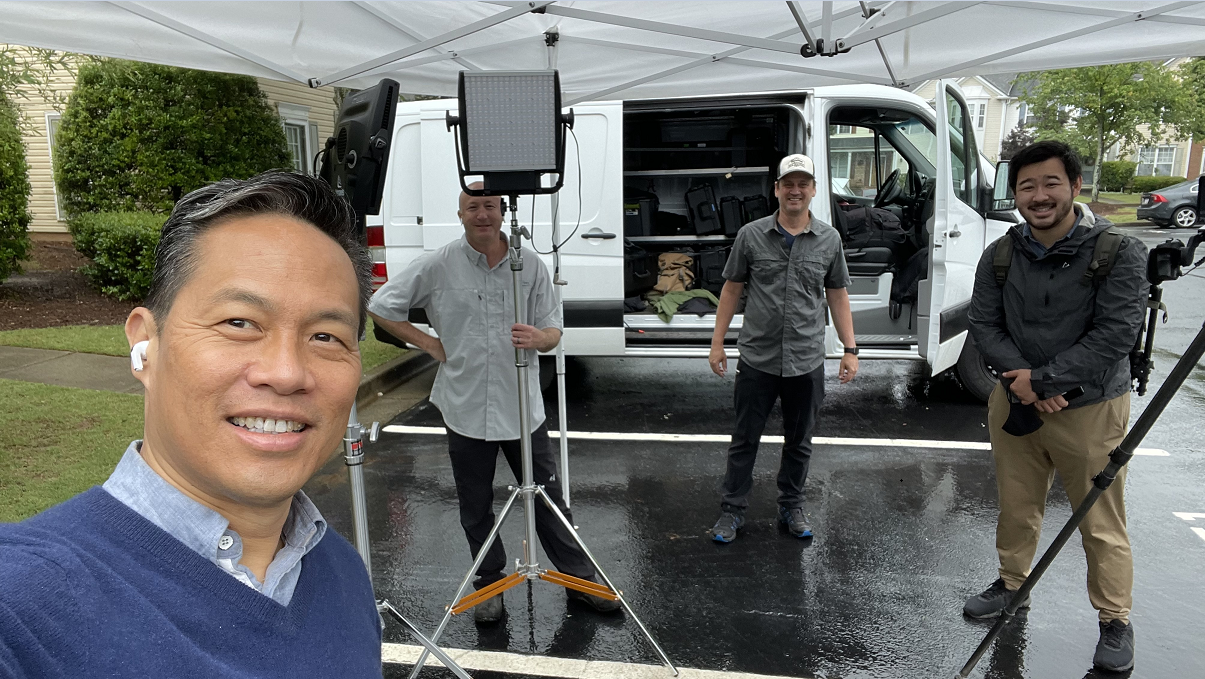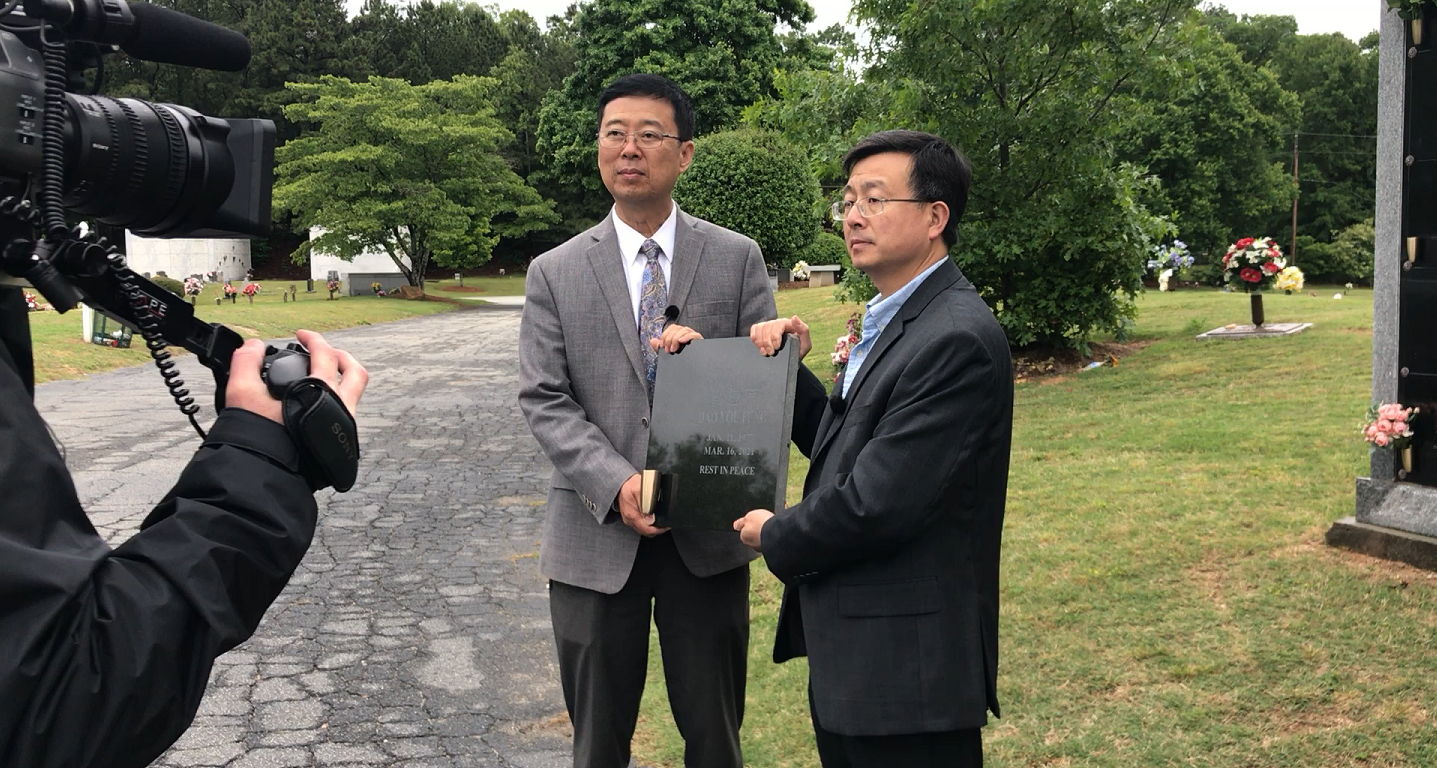
How do you revisit a story? After all the cameras have packed up and left, how do you go back and find something fresh that viewers didn’t know or understand in the heat of the breaking news moment?
Two months after the March 16 Atlanta spa shootings, which left eight dead, including six women of Asian descent, MSNBC anchor Richard Lui and I challenged ourselves to do just that. The best way to do this, we thought, was to memorialize the victims, to focus on their stories and those of their families — and to find out how their lives have been changed forever.
Preparation
A reporting trip like this requires lots of preparation before you even leave.
We began by reaching to contacts on the ground in Atlanta who could put us in touch with the representatives for the families of the victims, Soon Chung Park, Suncha Kim, Yong Ae Yue, Hyun Jung Grant, Xiaojie Tan, Feng Daoyou, Paul Andre Michels and Delaina Ashley Yaun. We reached out to our breaking news colleagues who initially covered the shootings, to our MSNBC booking team, and to our research desk who pulled public documents to help us find phone numbers and email addresses. Local journalists and community groups in Atlanta gave us leads. We also had to get creative.
For example, we were having trouble finding Mike Webb, the ex-husband of Xiaojie Tan. After digging through local publications, I found that Tan’s funeral was held at a church north of Atlanta, so I reached out and asked if they could put me in touch with Webb. They passed along my request and Webb and I were soon chatting over the phone.
Several profiles of the victims had already been written by other journalists by the time we traveled to Atlanta, so some might ask why we’re doing what we’re doing. And they’re right: There should be a good reason why your editor should allocate time, resources and effort to pursue a follow-up piece.

To figure out if it’s worth it, try answering some of these questions: Do you have information that’s compelling and new? Do you think this follow up is timely and relevant? Does this new reporting move the story forward or add a new dimension? For us, even with the profiles that some had already done, many of the families still hadn’t told their stories at length, and we had an opportunity to fix that.
Once we had assembled more than half of the families who expressed interest in speaking to us, we pitched the story to MSNBC, who greenlit the story. The next day, I arranged my travel, packed my bags, and Monday morning I was on the ground in Atlanta.
Scheduling and logistics
For the three-day shoot – Monday through Wednesday – we had a lot to tackle, so putting together our schedule took a lot of work. I had to figure out when each interviewee was available, how long it would take for us to drive to them, and how much time the crew needed to set up and tear down equipment.

It also required flexibility, as plans can – and will – change. No matter how much you prepare, the shoot won’t go according to plan. This may even be little things, like bad weather (it rained Monday and Wednesday, complicating our outdoor shoots).
But you can also have good luck. On Monday night, we received word that Fulton County District Attorney Fani Willis would announce hate crime charges against the alleged shooter and would seek the death penalty. This meant that in addition to revisiting the story of the shooting, we were also breaking news.
Bringing it all together
Once we had our footage, we had to piece it together. I stuffed a two-terabyte hard drive into my carry-on luggage and caught a flight from Atlanta to New York City Wednesday night, landed at midnight, and was at 30 Rockefeller Center by 7:30 a.m. to begin editing.
Identifying key soundbites among hours and hours of footage was crucial. Even before the edit time, I had been writing down my thoughts on best soundbites from Richard’s interviews. This made everything much easier, as I zeroed in on finding timecodes and beats to lay it all out. Organizing three days of footage can be challenging, so it helps to start getting organized early and to take notes in the field.
Being willing to let go of your favorite moments
But not everything can make it into the final cut. One thread that was left on the cutting room floor was the story of Feng Daoyou. She was a Chinese citizen who worked in one of the spas and had no family or friends in the United States. A local Chinese community organization had arranged her funeral after she was killed, but her family in China had a custom in which they couldn’t accept an unmarried woman for burial. So Feng was buried in Atlanta. A plastic placard was placed at her burial site while a stone tablet was being chiseled, a process that could take weeks.

When we arrived at the cemetery, the funeral director greeted me with surprising news: the stone tablet had arrived minutes earlier. After interviewing community organizers there, I wept in the car, saddened that this woman had died alone in a country where she was surrounded by strangers, but also moved by the kindness of those strangers who had arranged a funeral in her memory.
During the editing process, the storyline became too difficult to place in the final product. Instead, we focused on the stories of Yong Ae Yue, Xiaojie Tan and Hyun Jung Grant, whose families had equally moving stories. It can be hard to let go of stories, but producers need to be open minded and flexible about the limits of the storytelling we can do. I hope we can revisit the story of Feng soon.
After some edits, we had our completed piece ready for Weekend MSNBC. Our goal was to offer an opportunity to many of these families to remember who their loved ones were and share those memories with the world. I hope we succeeded.



